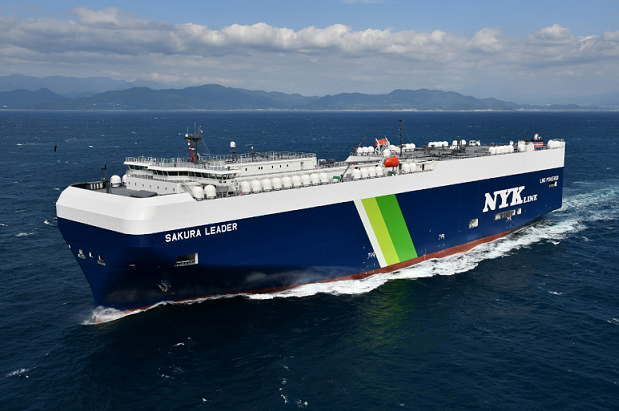It goes without saying that the green revolution is here, and with both big and small businesses hopping on board, there has never been a better moment to make the change.
Traditionally, the environmental performance of ships and vessels in the marine industry has never really been a major concern. However, with the inevitable greening of the transportation industry, it’s only a matter of time until the marine industry, its close relation, comes under scrutiny.
From transitioning from fossil fuels to more sustainable energy sources and abiding by present and future environmental standards, making sure the marine industry adopts environmentally friendly practices goes beyond reducing carbon emissions.
So what steps can the maritime sector take towards sustainability?
1. Green retrofitting
Many older style vessels have a more traditional design and means of operation than newer ships in the industry. For example, a more modern ship might run on solar power for electricity. It may also feature an exhaust scrubber, a device that combines water or caustic soda with exhaust from the ship which removes a sizeable amount of the harmful particles. As building a new ship is more expensive than refurbishing an old one, many owners/operators are increasingly turning to conversions and retrofitting. This is where green retrofitting comes in.
As the name suggests, green retrofit refers to the renovation of an existing ship or vessel in order to improve its sustainability and environmental efficiency. A green retrofit is essentially an attempt to lower a vessel’s carbon footprint and future-proof it, the renovations and adjustments of which can be a large or minor refurbishment.
There are no set criteria defining what constitutes green retrofitting. This is due to the fact that the refurbishment and adjustments made will depend on the particular vessels specifications, the difficulties encountered and the project’s deliverables. It’s also important to remember that green retrofitting can consist of smaller, more manageable projects and does not necessarily entail a full refurbishment.
2. Eliminate single-use plastic
The logic behind eliminating single-use plastic is simple. With an estimated 33 billion pounds of plastic ending up in our marine environments every year, it makes sense that the maritime industry itself should be one of the driving forces behind finding more sustainable ways of supplying drinking water onboard a vessel.
When it comes to creating more sustainable drinking solutions at sea, many maritime businesses are already making the switch. This includes eliminating the use of single-use plastic through maritime drinking water solutions such as the installation of water units and infrastructure onboard, providing reusable water bottles at sea and the procurement of filtration solutions.
3. Hydrodynamics
Although subtle, one way of improving the environmental efficiency of large vessels and ships in the sector is by improving the shape of the hull through hydrodynamics. Improving the shape of the hull to sail more smoothly in the ocean can increase speeds by creating a more efficient environment for the engine of a ship which can improve fuel consumption and decrease emissions.
Paint can also benefit hydrodynamics. Although many ships use standard industry-grade paint, biocide-free paint can work better with marine life as well as improve fuel efficiency.
4. Wind power
The shipping industry generates 940 million tonnes of CO2 annually, with about 2.5% of the world’s greenhouse gas (GHG) emissions attributed to the industry every year. Despite the fact that maritime shipping is less environmentally harmful than making the same trip by land or air, reform is still necessary due to the sheer size of the global shipping industry.
In 2008, The International Maritime Organization (IMO), an agency operating within the United Nations, pledged to cut the total yearly greenhouse gas emissions from shipping by at least 50% by 2050. This of course requires brand new tools, technologies and methods of operation and means the use of wind power is once again being explored in a multitude of ways.
For example, modern hybrid container ships are currently being developed using cutting-edge technologies that will once more harness wind energy – just as our ancestors did a century or so ago. As a result, the future of the maritime industry could be traditional sails that are made of much lighter, more effective materials. Kite sails that soar above the ship, and Flettner rotors, which are huge rotating cylinders, are also currently in development.
5. Crew management
With fewer opportunities of relieving stress at sea, prioritising the physical and mental welfare of everyone on board a vessel is of paramount importance for all vessels operating within the marine sector. Of course, this includes any passengers, guests or tourists on yachts and cruise ships, but it’s also a critical component of crew management.
Every day, mariners and seafarers alike deal with a unique working environment that can present a number of difficulties, resulting in tension among the crew and a great deal of stress. Neglecting to fuel a crew with regular meals can be incredibly detrimental to their health and result in illness at sea, which will in turn adversely affect the health of a vessel’s infrastructure detriment to operational efficiency. It’s also important to ensure your crew have access to high-quality medical care and supplies. Although it may sound simple, ensuring the physical and mental wellbeing of your vessel’s crew is taken care of is the key to achieving a more efficient, more sustainable vessel.
Final thoughts
Making sure the marine industry adopts environmentally friendly practices goes beyond lowering carbon emissions. It could be as simple as ensuring the mental and physical welling of a crew is prioritised, or as specific as replacing single-use water bottles with high-quality, reusable containers.
There is no disputing the arrival of the green revolution. With both big and small businesses embracing the arrival of a greener, more environmentally friendly era, there’s never been a better time to make the change. While the environmental performance of the marine industry has historically never really been challenged, it won’t be long until the sector is in the spotlight.
